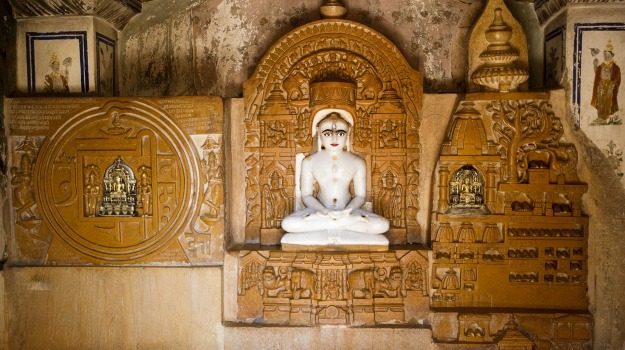Mahavira Jayanti is one of the most significant days for Jains. Celebrated with much enthusiasm all across the globe, the day marks the birth anniversary of the last Jain thirthankara (holy propagator) – Mahavira. Every year, Mahavir Jayanti falls on the 13th day of the Chaitra month. According to the Gregorian calendar, it spans between the months of April and May.
Jainism relies heavily on the teachings of the 24 thirthankaras who propagated a way of lifestyle that is free from any worldly attachments. Non-violence (ahimsa) is one of the most important and primary tenets of Jainism where it preaches not to afflict harm or injury to another living being – human, animal or insects. In Jainism, every living entity – including millions of invisible micro-organisms – holds importance. Those who follow strict Jainism, have their mouths covered all the time so as to avoid inhaling and therefore killing those invisible micro-organisms.
Food and Jainism
According to Jainism, consuming plants for the sake of human existence is all fine, but there are strict conditions to it. Veganism is encouraged and any such practice which would harm nature or animals in any possible way is bracketed out. The idea is to minimize one’s dependence on the world’s resources. Jains are therefore strictly vegetarians and within that, they are selective about what all they eat.
They avoid tubers or bulbs – veggies that grow underground – as they have the ability to sprout and multiply. Another reason is the fact that the act of uprooting the vegetables results in harming many small insects and micro-organisms. Alcohol and non-vegetarian food items are a strict no in Jainism. Fermented food items (that involve micro-organisms like yeast, bacteria to arrive at the final product) and certain bahu-beej (multi-seeded vegetables) like brinjal are also excluded.
Mahavir Jayanti sees Jains across the globe visiting temples and praying for their well-being. It is a day that involves revisiting the holy guidelines and principles of ahimsa (non-violence), satya (truth), asteya (non-stealing), aparigraha (non-attachment) and bramhacharya (chastity).

